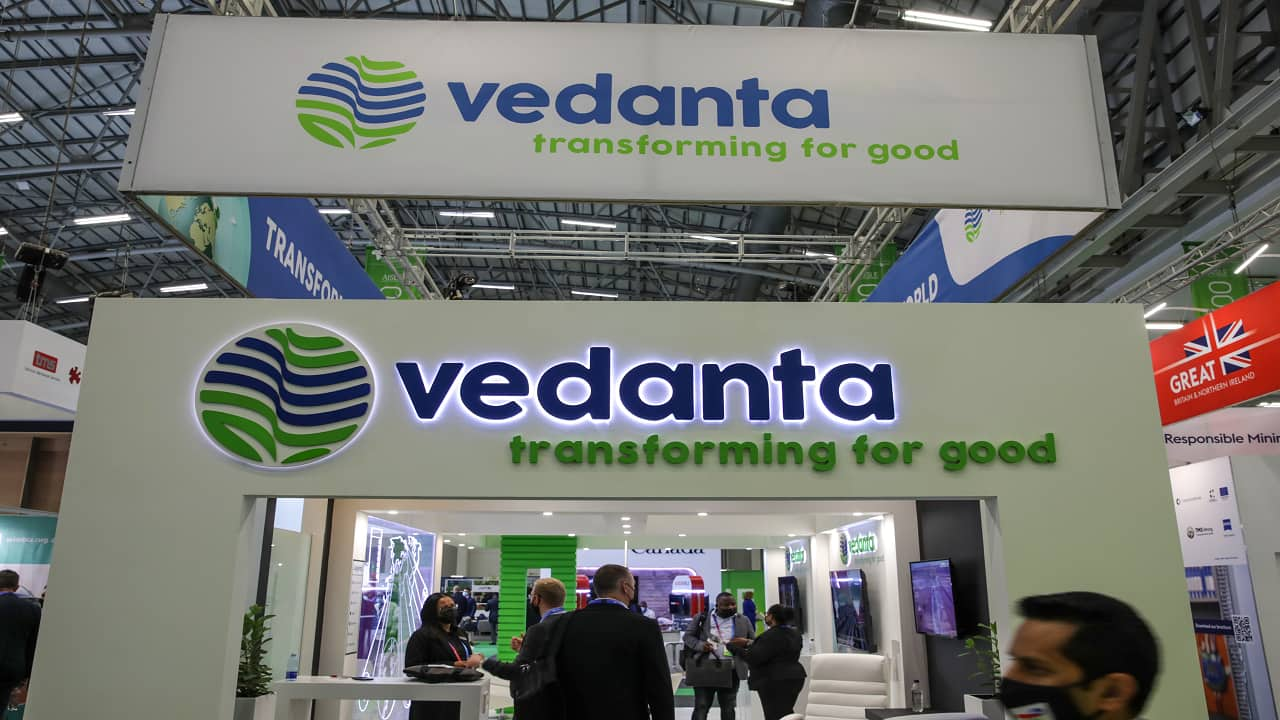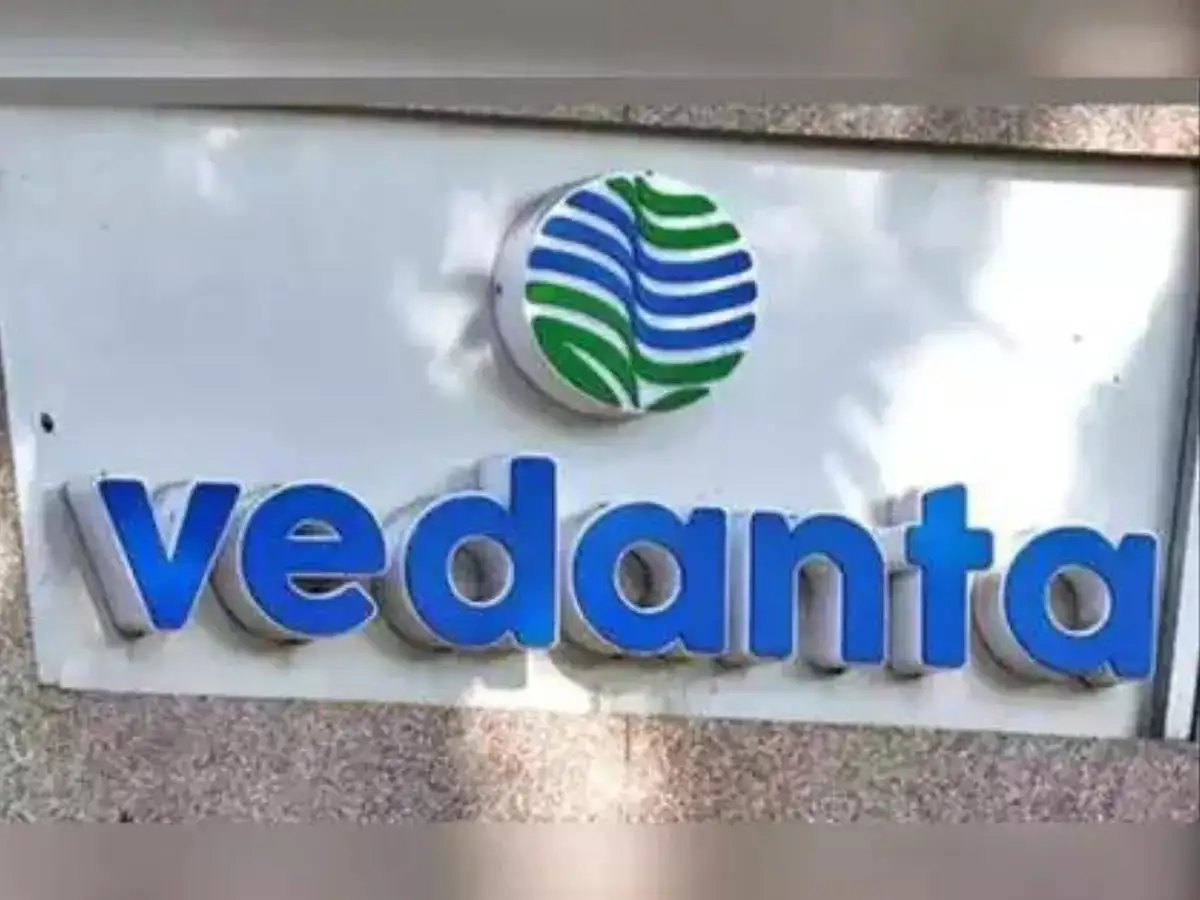Shares of Vedanta Limited and Hindustan Zinc Ltd experienced a dramatic sell-off on July 9, 2025, after a report from a US-based short-seller alleged financial irregularities, unsustainable debt practices, and a “Ponzi-like” group structure within the Vedanta conglomerate. The report’s explosive claims triggered an immediate and sharp reaction in the Indian stock market, with Vedanta shares plunging as much as 8% intraday and Hindustan Zinc tumbling up to 5%. The fallout has raised urgent questions about corporate governance, debt sustainability, and the future of two of India’s most prominent metal and mining companies.
The recent plunge in Vedanta and Hindustan Zinc shares has unsettled investors who have long viewed these companies as pillars of India’s metal and mining sector. Both firms have historically been considered stable, with strong cash flows and strategic importance to the country’s industrial growth. However, the allegations of financial manipulation and excessive debt have cast a shadow over their reputations, prompting investors to reassess the risks associated with holding these stocks.
Market analysts are now closely monitoring Vedanta’s upcoming financial disclosures and board meetings for signs of how the company plans to address the concerns raised. The focus will be on whether Vedanta can provide transparent explanations about its debt levels, inter-company transactions, and cash flow management. Investors will also be looking for concrete steps toward deleveraging and improving governance practices to restore confidence.
The broader impact of this episode extends beyond Vedanta and Hindustan Zinc. It has reignited debates about the corporate governance standards prevalent among large Indian conglomerates, especially those with complex holding structures and cross-border financial arrangements. Regulators and policymakers may face increased pressure to tighten disclosure norms and enhance oversight mechanisms to prevent similar situations in the future.
Investor sentiment in the metal and mining sector is likely to remain cautious in the short term. The sector’s performance is closely tied to global commodity prices and domestic demand, but governance issues and financial opacity can weigh heavily on valuations. Companies with clearer balance sheets and stronger governance frameworks may attract more investor interest as a result.

Viceroy’s Allegations: Ponzi Scheme Claims and Financial Red Flags
The report accused Vedanta Resources Ltd (VRL)—the UK-based parent of Vedanta Limited—of orchestrating a complex and unsustainable financial structure. It likened VRL’s operations to a Ponzi scheme, claiming the holding company has no significant business of its own and survives by systematically extracting cash from Vedanta Limited, its Indian subsidiary. According to the report, this arrangement creates a “self-destructive feedback loop” that erodes Vedanta Limited’s value and puts both shareholders and creditors at severe risk.
Among the key allegations:
-
VRL is described as a “parasite” holding company, propped up entirely by cash flows from Vedanta Limited.
-
The group’s net debt—including working capital—has ballooned by billions since FY22, while cash reserves have been depleted.
-
Vedanta’s interest expenses have continued to rise, despite restructuring efforts and asset sales.
-
The report claims that brand fees, circular loans, and inter-company transactions are being used to mask the true extent of financial stress and artificially inflate profits and asset values.
-
The short-seller also disclosed its own short position on VRL’s debt, signaling its lack of confidence in the group’s financial health.
Market Reaction: Share Prices Tumble, Investors on Edge
The immediate market reaction was swift and severe. Vedanta shares dropped as much as 8.7% to ₹421 intraday before recouping some losses, while Hindustan Zinc fell nearly 5% to ₹415. The rout wiped out thousands of crores in market capitalization and sparked widespread concern among retail and institutional investors alike.
By the end of trading, Vedanta shares were still down over 3%, and Hindustan Zinc remained in negative territory. The sell-off was exacerbated by the timing of the report, which came amid ongoing corporate restructuring efforts at Vedanta and heightened sensitivity to governance risks in India’s capital markets.
Vedanta’s Response—“Malicious and Baseless Allegations”
In response to the report, Vedanta Group issued a strongly worded statement, categorically denying all allegations. The company called the report “a malicious combination of selective misinformation and baseless allegations to discredit the Group,” and accused the short-seller of attempting to manipulate the market for profit. Vedanta emphasized that the report was released without any attempt to contact company officials and that it merely sensationalized publicly available information to create panic among investors.
Vedanta also questioned the timing of the report, suggesting it was intended to undermine the company’s forthcoming corporate initiatives and restructuring plans. The group asserted that its stakeholders are discerning enough to see through what it described as “false propaganda.”
Debt Dynamics—Mounting Leverage and Cash Flow Concerns
At the heart of the crisis are the claims about Vedanta’s mounting debt and the sustainability of its cash flows. The report highlighted a multi-billion shortfall in free cash flow against dividends over the past three years and a near-doubling of net debt since 2022. It alleged that Vedanta Limited is being forced to take on increasing leverage and draw down its cash reserves to service VRL’s obligations, weakening its own balance sheet and eroding its intrinsic value.
The report further warned that this dynamic poses significant risks to VRL’s creditors, as Vedanta Limited serves as the primary collateral for the parent company’s lenders. With interest costs rising and the ability to borrow further constrained, the group’s financial structure is described as “operationally compromised” and unsustainable.
The Vedanta and Hindustan Zinc episode has prompted renewed scrutiny of the role played by short-sellers and research firms in shaping market perceptions. While some investors view such reports as alarmist or self-serving, others argue that they serve an important function by highlighting potential risks that may not be immediately apparent from official disclosures. This dynamic underscores the need for balanced, fact-based analysis and open dialogue between companies, investors, and independent analysts to ensure that market reactions are grounded in reality rather than speculation.

Looking ahead, the ability of Vedanta and Hindustan Zinc to regain investor trust will depend on their transparency, responsiveness, and willingness to address governance concerns head-on. Proactive engagement with stakeholders, timely communication, and demonstrable improvements in financial practices will be essential for restoring confidence and stabilizing share prices. As the dust settles, the lessons learned from this episode may lead to lasting changes in how Indian companies approach corporate governance and financial disclosure, ultimately benefiting the broader market ecosystem.
Governance and Transparency Under Scrutiny
The report has reignited concerns about governance and transparency at large Indian conglomerates. Allegations of accounting trickery, circular loans, and the use of brand fees to mask cash transfers have raised alarm bells among analysts and market regulators. Investors are demanding clearer disclosures and more robust oversight to ensure that minority shareholders and creditors are not left exposed to hidden risks.
The episode has also prompted calls for a broader review of inter-company transactions and the use of complex holding structures in India’s corporate sector. Market experts warn that such arrangements, if left unchecked, can undermine confidence in the country’s financial markets and deter long-term investment.
What’s Next? Uncertainty Looms for Vedanta and Hindustan Zinc
As the dust settles, the future remains uncertain for Vedanta, Hindustan Zinc, and their parent group. While Vedanta’s management has sought to reassure investors and distance itself from the allegations, the damage to sentiment has been done. The group’s ability to execute its restructuring plans, refinance debt, and maintain investor confidence will be closely watched in the coming weeks.
Regulatory authorities may also step in to examine the claims made in the report, potentially leading to further scrutiny of the group’s financial practices. For now, the episode serves as a stark reminder of the risks inherent in highly leveraged conglomerates and the importance of transparency and accountability in corporate governance.
Conclusion: A Wake-Up Call for Indian Markets
The dramatic fall in Vedanta and Hindustan Zinc shares following the report has sent shockwaves through India’s financial markets. The controversy has exposed deep-seated concerns about debt, governance, and transparency in some of the country’s largest business groups. As investors, regulators, and company managements grapple with the fallout, the episode underscores the urgent need for stronger oversight and more rigorous financial disclosures to protect stakeholders and preserve market integrity.
Credit rating agencies are also expected to reassess Vedanta’s creditworthiness in light of the new information. Any downgrade could increase borrowing costs and further strain the company’s financial flexibility. This, in turn, could impact Vedanta’s ability to fund expansion projects or refinance existing debt, adding to the uncertainty surrounding its near-term outlook.
The role of institutional investors will be critical in the coming weeks. Large mutual funds, pension funds, and foreign portfolio investors hold significant stakes in Vedanta and Hindustan Zinc. Their reactions—whether to hold, sell, or demand changes—will influence market dynamics and potentially prompt management to take decisive action to address governance and financial concerns.
Meanwhile, retail investors, many of whom have invested in Vedanta and Hindustan Zinc for their dividend yields and growth prospects, are grappling with the sudden volatility. Investor education and communication from the companies will be vital to prevent panic selling and to maintain a stable shareholder base during this turbulent period.

Finally, this episode serves as a reminder of the importance of due diligence and risk assessment in equity investing. Even well-established companies can face challenges that dramatically affect their valuations. For investors, balancing growth potential with governance and financial health considerations is essential to navigate the complexities of today’s markets.
Follow: Vedanta

